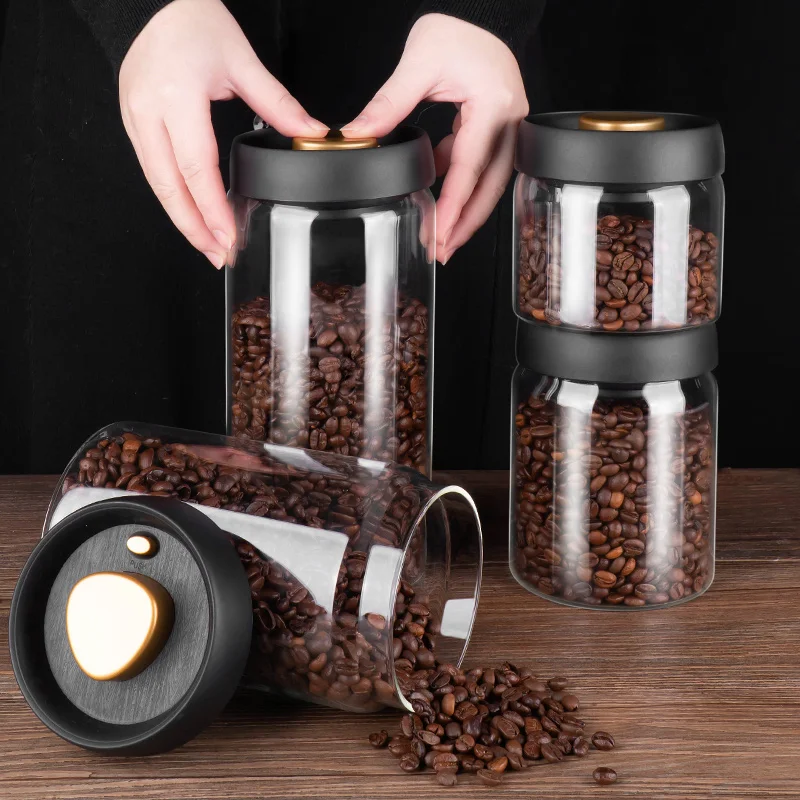
Choosing Coffee Storage Containers
Glass, ceramic, or stainless steel? Compare container materials, seal types, and sizes to find the perfect storage solution for your needs.
Preserve your coffee's flavor and aroma with proper storage techniques. Learn about oxygen exposure, degassing, container selection, and timing to keep beans at peak freshness from roast to cup.

Glass, ceramic, or stainless steel? Compare container materials, seal types, and sizes to find the perfect storage solution for your needs.
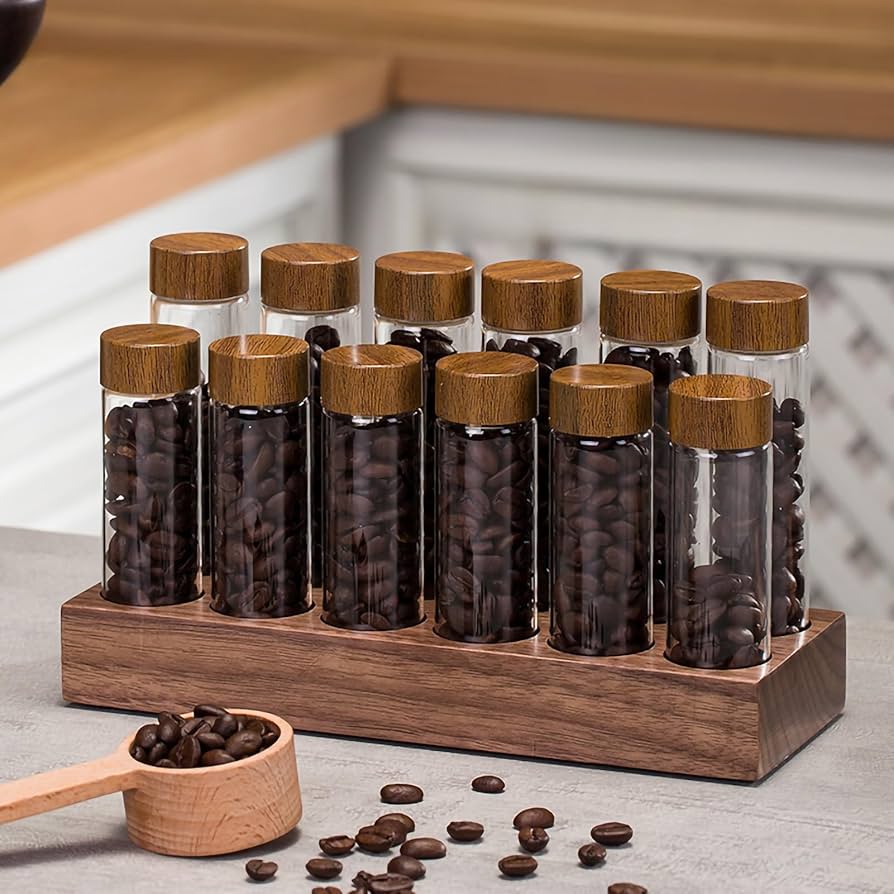
CO2 valve bags allow degassing while blocking oxygen. Compare one-way valves, vacuum systems, and traditional airtight storage.
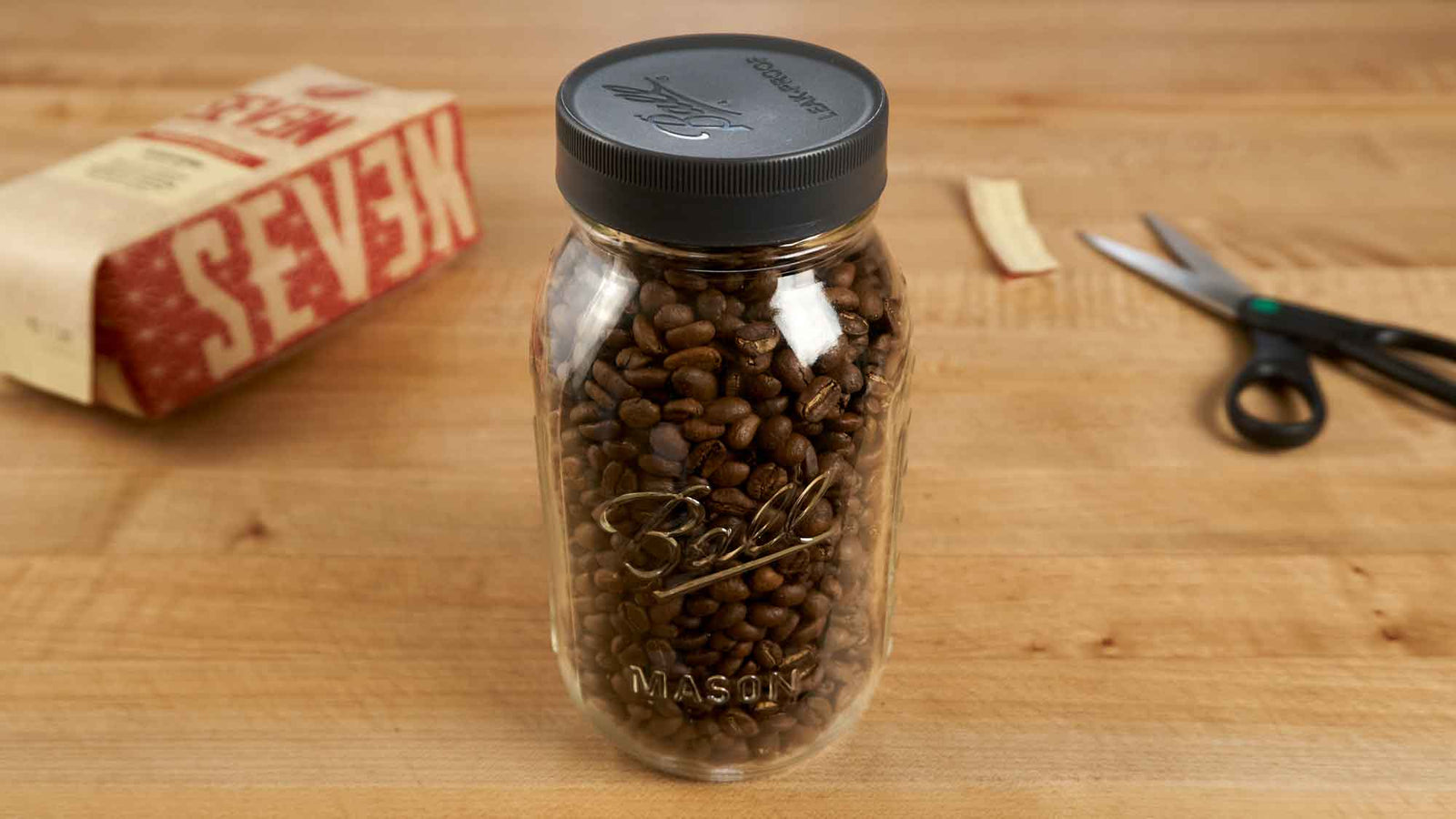
Mason jars offer affordable, effective coffee storage. Learn about lid types, gasket options, and modifications for optimal bean preservation.
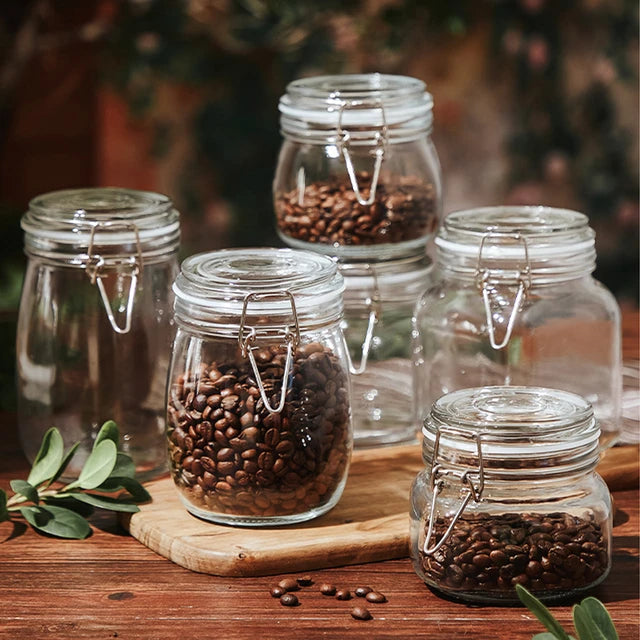
Professional-grade storage with humidity control, UV protection, and precision seals. Investment options for serious coffee enthusiasts.
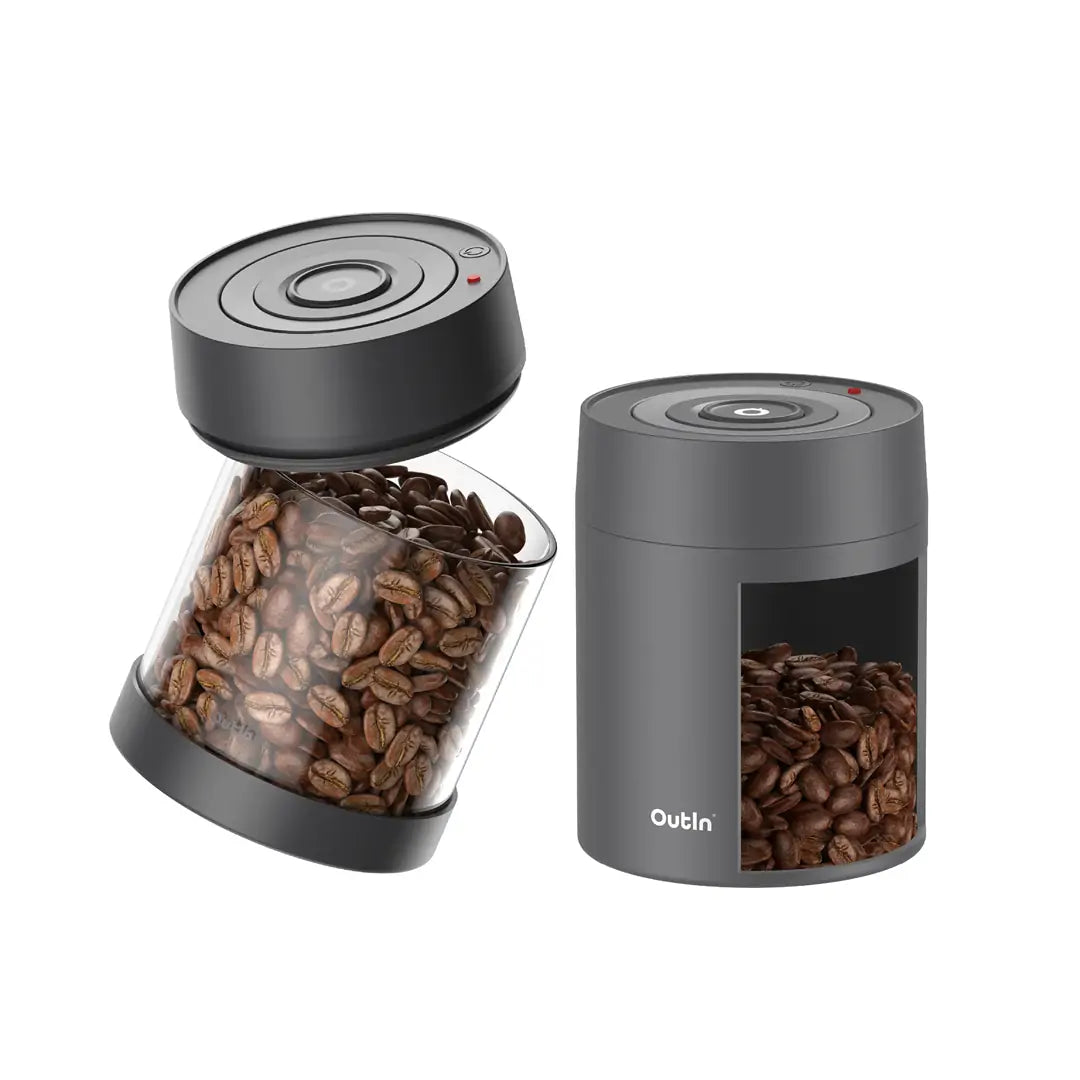
Match container size to your consumption patterns. Avoid too-large containers that expose beans to unnecessary air exchange.

Oxidation, moisture loss, and aromatics evaporation. Understand the science behind coffee freshness and what causes flavor deterioration.

Newly roasted coffee releases CO2 for days or weeks. Learn how degassing affects storage decisions and optimal rest periods.

Environmental factors that accelerate coffee degradation. UV light, temperature fluctuations, and humidity effects on bean quality.

How oxygen exposure affects specific flavor compounds at different rates. Understanding which flavors degrade first and why.

How to interpret roast dates and "best before" information. Understanding freshness windows for different roast levels and storage methods.

Light, medium, and dark roasts peak at different times. Learn when coffee tastes its best and how to time your brewing accordingly.

Freezing, vacuum sealing, and nitrogen flushing for long-term storage. When these methods make sense and potential drawbacks.

Why coffee needs time to degas and how to find the sweet spot. Understanding optimal rest periods for different brewing methods.

Where to store coffee in your home. Avoid heat sources, optimize for stability, and understand temperature's impact on freshness.

Moisture is coffee's enemy. Learn about ideal humidity levels, desiccant use, and climate considerations for Canadian homes.

Seasonal changes affect storage needs. Humidity in summer, dry air in winter, and adapting storage strategies for Canadian weather.

When to keep coffee in original packaging vs. transferring to containers. Zip-lock bags, valve bags, and effective temporary storage.

Home vacuum sealing for coffee storage. Equipment options, pros and cons, and proper techniques for effective oxygen removal.

Professional nitrogen flushing for maximum freshness. DIY methods, safety considerations, and when this technique is worthwhile.

Visual, olfactory, and taste indicators of coffee freshness. Learn to identify when beans have passed their prime.

How flavor profiles change over time. Documenting coffee's journey from peak freshness through various aging stages.

Advanced freshness evaluation through aroma and extraction analysis. Professional techniques for assessing coffee quality over time.

Organize your coffee storage for optimal rotation. Track purchase dates, consumption rates, and minimize waste through smart inventory management.

Economic benefits of bulk purchasing balanced with freshness concerns. Strategies for buying large quantities while maintaining quality.

Maintaining coffee quality while traveling. Portable containers, climate considerations, and short-term storage solutions.

Preserve coffee quality when giving gifts. Appropriate containers, presentation, and ensuring recipients can maintain freshness.

Effective coffee storage without expensive equipment. DIY solutions, repurposed containers, and maximizing freshness on a budget.

High-end storage solutions for serious coffee collectors. Climate-controlled systems, professional-grade containers, and long-term preservation.